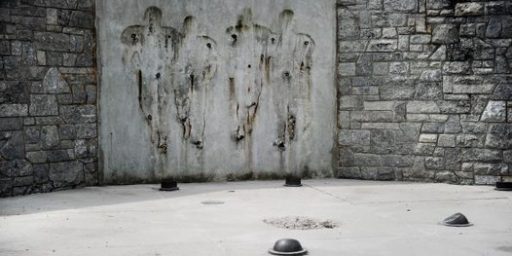2004 Versus 2000
Michael Barone notes the “eerie similarity” in current state-by-state polls pitting Bush vs. Kerry and the outcome of the Bush vs. Gore contest in 2000. He does the usual analysis of the situation and then observes,
The Bush/Cheney 2004 people point out, rightly, that people don’t know John Kerry as well as they will in November. A couple of weeks ago, I put it to Democratic pollster Mark Penn (Clinton 1996, Lieberman 2004) that of the 100 bits of information people will have about Kerry in November, they have only about seven bits now. “You’re wrong,” Penn said. “They have only three bits now.” As Kerry becomes identified as a more partisan and a more liberal figure, as he certainly will be, his high favorable/unfavorable ratings are bound to fall. The information people have about Kerry now is largely favorable. To the extent they have been following the race for the Democratic nomination, the things they have been hearing about the candidate who has won 27 of the 30 contests have been favorable. The story has been about Kerry winning, and the reasons for that are guaranteed to be favorable. Particularly since none of his Democratic rivals has run a negative ad about him, and all of them have said only a very few unfavorable things about him.
The more worrying thing for Republicans is that Bush is only even, at the most favorable interpretation, with Kerry at this point. After three years as president, and after some indisputable triumphs, he is only back to where he was in November 2000, when he was the candidate of the out party at a time of apparent peace and apparent prosperity. A stronger positive case needs to be made for Bush; and a stronger negative case against Kerry. Bush̢۪s speech to the Republican Governors Association indicates that he knows how to make both the positive and negative cases. But now he must deliver his message, and much of it must be delivered via an old media, which, while not reliably pro-Democratic, is always reliably anti-Republican.
Leaving aside that last sentence–clearly, there are some pro-GOP media out there, too–Barone’s analysis seems dead on.



True there is a pro – GOP media out there, but I would love to see the exposure that it recieves from those that do not chase the news.
I would assume that there is a definate bias against the GOP in the Mass Media channels.
For example, where I live it is hard to get the AM signals. So when the alarm clock goes off, I hear the sqwakings of FM morning shows. I say shows because I have to change the station every three days to keep from destroying the alarm clock. Typically, these shows are always saying something snarkey about the President.
This subtle message is what scares me.